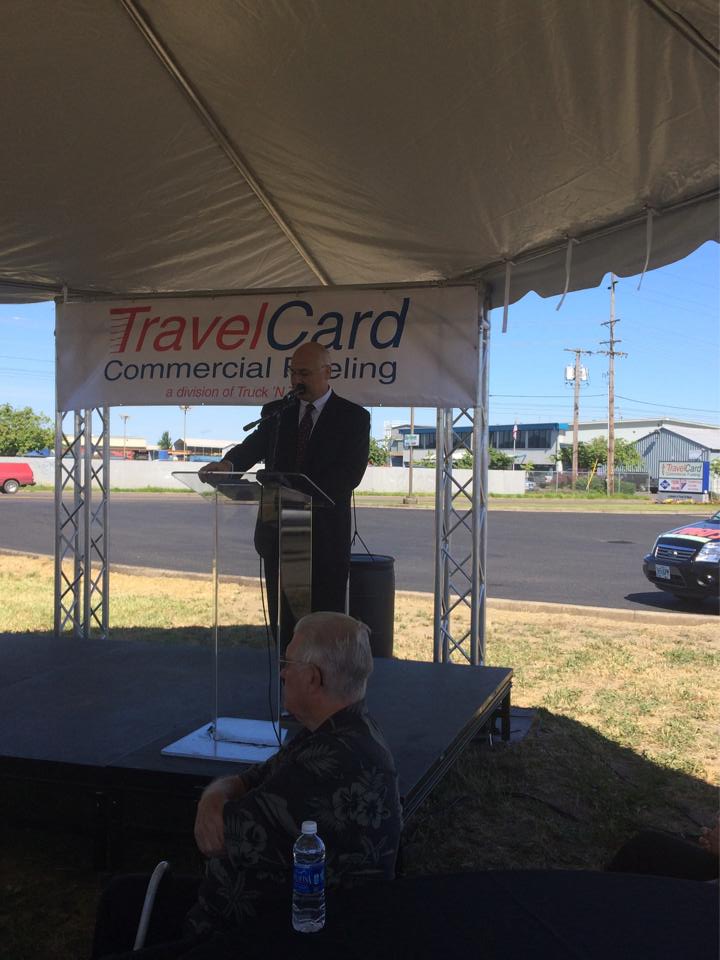
Natural Gas powered vehicles.
The Eugene area now has the first public Natural Gas high pressure filling in the State of Oregon. In my opinion, this is a very good alternative to gasoline. It in abundance in the USA, the inner-structure is already in place, it’s cheaper, produces less emissions and has a quick fill time as opposed to recharging electric vehicles. More on this next month.
Intermittent Problems
One of the daily challenges that we have at our shops are intermittent problems.
Noises, poor running, no starts, vibrations that don’t happen all the time are all in this field.
In any kind of problem solving in any kind of profession, there are 4 logical steps to problem solving.
The first is to experience the problem.
From this you can move to step two which is to theorize what the problem is.
Moving to step three, you test, inspect, diagnose to prove or disprove your theory.
The forth and most important of the steps is you repair or replace the part in question to make sure your theory is correct. The “proof in the pudding”. Is the problem solved or fixed?
If the problem is not there all the time, you can lose two to three of these steps. This is where the problem lies.
We have had vehicles that will crank over but won’t start. One of the first steps is to read the onboard ECU (electronic control unit or computer) to see if any codes are present. If they are, would the component cause the vehicle not to start? Worse yet, many no start problems such as a bad intermittent fuel pump don’t store a code.
In this case of a bad intermittent fuel pump, we can’t experience the problem unless it just so happens to fail on us, can’t test the problem and most important, not sure that if the theory of a bad fuel pump will solve the problem until it is installed and mileage is put on the vehicle.
Noises and vibrations are another tough one. You have to experience them to be able to repair them. One thing for sure, you can’t see a noise or vibration which makes the diagnose tougher. The good news is I have never had a intermittent noise or vibration strand anyone. Sometimes the customer has to be patient until the intermittent problem becomes more prevalent.
On times when a vehicle won’t start, the customer needs to have understanding the problem may not get fixed the first time and a part may be logical replaced that didn’t fix the problem. In this case, that procedure becomes part of the trouble shooting because all problem solving is the process of elimination.
Please keep in mind; modern vehicles are the most advanced item that most people owe, a moving, highly technical marvel that enhances your driving experience.
Save on pricy fuel with theses few tips
Check tire pressure at least monthly. Tire pressures are found on the driver’s door jamb or in the owner’s manual. Pressures written on the tires are a maximum pressure, not the recommended pressure. . Low tire pressure can reduce fuel mileage by 5% and create a safety hazard. Always check tire pressure when the tires are cold or cool, not after freeway driving. It is best to have your own tire pressure gauge. They are under $5.00
Drive smoothly, anticipate traffic lights, and no quick starts. Act as if there is an egg under your gas pedal, and accelerate slowly. Watch the traffic lights ahead so you don’t have to use your brakes. Every time you use your brakes, you waste energy. With a manual transmission, shift to a higher gear soon. With an automatic transmission, keep it in overdrive, even in town.
Maintain your vehicle. Do the services that your vehicle needs. If your check engine light is on, get it diagnosed and repaired.
Use proper oil. Check your owner’s manual for the proper oil to use. A lower viscosity (thinner) oil will get better fuel mileage
Use your cruise control on the freeway. A cruise control will keep an even throttle setting, saving fuel. Do not use a cruise control in poor weather, in busy traffic or on hills.
Don’t warm up your vehicle. Just drive easy until the temperature gauge is in the normal range. A vehicle not moving gets 0 miles per gallon and is a waste of fuel.
Empty your vehicle of unnecessary weight. The more things in your trunk, the more energy it takes to get it moving, and even uses more of your brakes to stop.
Remove ski rack, bike racks, and cargo carriers when not in use. This is most important on freeway driving. These create more air drag and will increase fuel consumption by up to 3 miles per gallon.
Combine trips. A cold engine gets poor fuel mileage. Plan your trips for errands. The easiest way to save fuel is not to drive.
Walk or bike more. You accomplish many things here. Save fuel, less pollution and even get some exercise.
Ride the bus. Not only does this save fuel but also lowers traffic congestion.
What Not to DoBuy any device that increases your fuel mileage. Save your money, they don’t work!
Replace a slightly dirty air filter. On new vehicles, air filters do not affect fuel mileage. The fuel system only injects the amount of fuel that is proportionate to the air entering the engine.